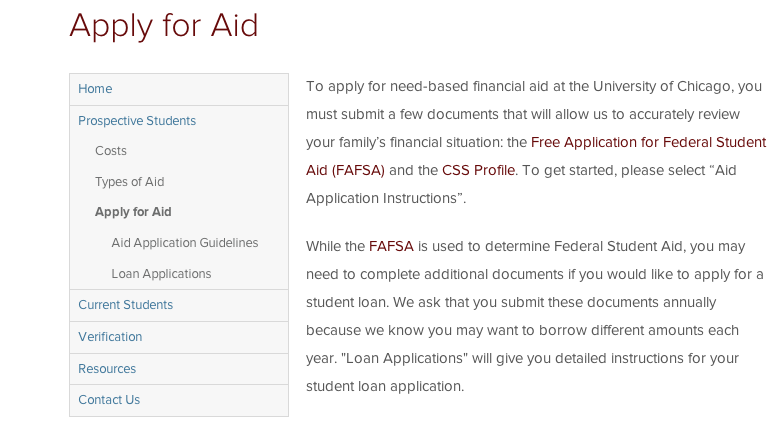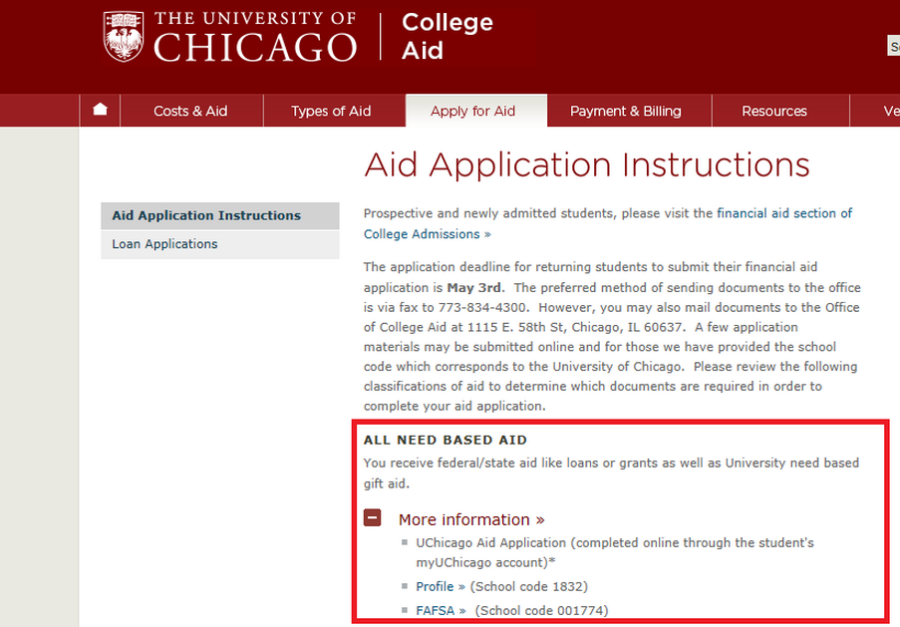The University was among 111 schools red-flagged by the Democratic staff of the House Committee on Oversight and Government Reform earlier this month for allegedly violating parts of the Higher Education Act. In response, the Office of College Admissions has clarified the financial aid application policies listed on its website.
According to Representative Elijah Cummings (D-MD), the Committee’s ranking member, the Higher Education Act prohibits the use of forms other than the Free Application for Federal Student Aid (FAFSA) when determining eligibility for federal aid. The University of Chicago, along with many other institutions, utilizes the CSS Profile form, which requires additional information and an application fee.
“Schools may be contravening the requirements of the Higher Education Act by explicitly requiring applicants to submit forms other than the Free Application for Federal Student Aid or by failing to make clear that only the FAFSA is required to be considered for federal student aid,” Cummings said in his letter to Secretary of Education Arne Duncan.
In an e-mail, University spokesperson Jeremy Manier clarified that “the University of Chicago does not require students seeking only federal financial aid to submit the CSS Profile; it is the FAFSA that is used in that context.”

The Federal Pell Grant, Federal Supplemental Educational Opportunity Act, Federal Perkins Loan, Federal Stafford Loan, and Federal PLUS Loan for Parents all fall under the category of federal financial aid, according to the Office of College Admissions’ financial aid page.
“Of the University’s approximately $100 million aid budget, about 3 percent comes from federal grants and 75 percent is funded by the University of Chicago, with the rest coming from other sources,” Manier said. “In addition to awarding federal aid, the University of Chicago provides extensive institutional aid to students to reduce their overall cost of education. Only students applying for this institutional aid, as distinct from federal aid, are required to submit the CSS Profile.”
Students were asked whether they had known that the FAFSA was the only requirement for federal aid consideration.
“I did the CSS and the FAFSA, but I didn’t know the FAFSA was only required for federal student aid,” first-year Mariyam Siddique said.
Second-year Ana Martinez said that she completed both the CSS Profile and FAFSA on her own.
“If the University is going to grant aid to students, they have a right to ask for sufficient information. I assumed they needed the CSS and FAFSA because we were required to submit both,” Martinez said.
The Higher Education Act is a federal law that “prohibit[s] higher education institutions from using any forms other than the Free Application for Federal Student Aid (FAFSA) to determine eligibility for federal financial aid.” In his letter, Cummings requested a meeting with Duncan to discuss the best ways to ensure that colleges and universities are in “full compliance with the Higher Education Act and are not creating improper and unnecessary barriers” to federal assistance for students.









